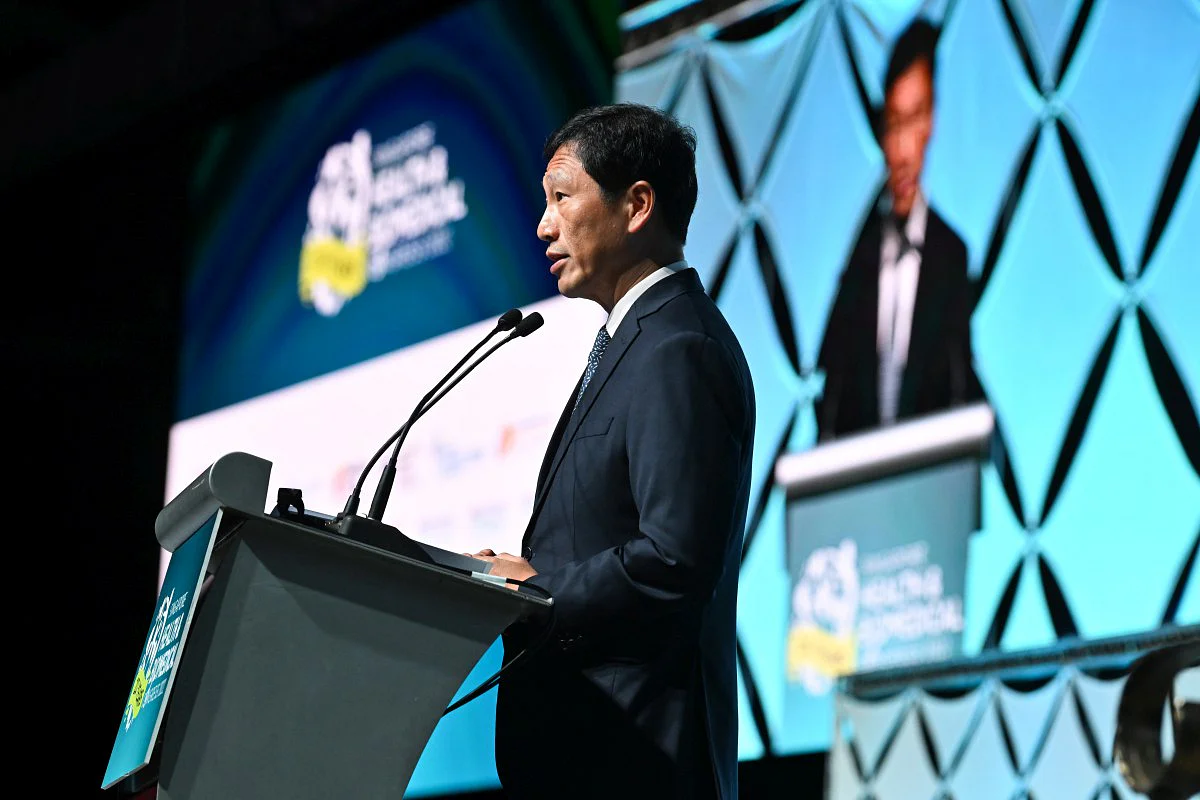October 12, 2022
SINGAPORE – Singapore has done all it can to reduce the burden posed by chronic illnesses, but the number of people suffering from conditions such as high blood pressure continues to go up, pushing up healthcare costs.
Hence the need to shift the strategy towards greater preventive care, said Health Minister Ong Ye Kung on Wednesday.
Mr Ong said the ministry’s new Healthier SG initiative to keep people healthier for longer is an important effort to reverse rising costs, noting: “We will try everything we can to cope with the disease burden.”
These have included rigorous evaluations on whether treatments provide value for money, “removing the distortions caused by reckless medical insurance practices”, and linking payment with patient outcome.
“It is not too late to shut the dam, and the way that is the most impactful and simplest to understand is to focus on preventive care,” Mr Ong told 1,300 healthcare professionals in a keynote address at the Singapore Health and Biomedical Congress at the Singapore Expo.
The National Healthcare Group’s (NHG) two-day annual congress theme this year is “reinventing healthcare”, with sessions looking at transforming the healthcare workforce and the impact of technology on care.
Mr Ong said one silver lining has been that the prevalence rate for diabetes has remained stable, most likely because of the many measures taken in the country’s war on diabetes. But other chronic conditions such as high blood pressure and cholesterol levels are still going up among adults.
Likening the slide into poor health to people on a travellator who do not notice its movement, the minister said what was “scarier” was that most people with deteriorating health are oblivious to the impending danger they are being carried towards.
Alerting people to this danger, such as through the publicity given to the Healthier SG initiative, may prevent them from getting onto the travellator in the first place, he said.
“Clinicians know that preventive steps in our daily lives can fob off severe illnesses later on in life. That is the genesis of our long-term, multi-year healthcare transformation journey, called Healthier SG.”
It seeks to empower people to take charge of their own health. More are already opting for healthier drinks he said, noting: “Sales of beverages with less than 5 per cent sugar content have gone up, from 37 per cent in 2017 to 60 per cent in 2021.”
The mandatory nutrition labelling by the end of this year for pre-packed drinks will hopefully nudge even more people to pick healthier options.
Physical exercise is critical to better health, and the minister hopes “gamification” will make healthier living more attractive.
The Health Promotion Board’s National Steps Challenge, for instance, which gives participants small rewards for achieving their health goals, such as a certain number of steps a day, has shown this works.
People who are in the early stages of chronic diseases – “on the initial part of the travellator and moving slowly” – will be encouraged to change their lifestyles and return to good health. Under Healthier SG, family doctors will be brought on board and older people urged to commit to one doctor.
The ministry will subsidise this move from next year with people 60 years and older, and reduce the eligible age to 40 years in the next few years.
“The physical act of enrolment, committing to build a long-lasting patient-doctor relationship, receiving a health plan with diet adjustments and exercise as ‘social prescriptions’, will hopefully make the penny drop,” he said.
In addition, MOH is working with a network of health, social and community partners to support people to live healthier lives through organised activities.
Mr Ong said such community spaces would be important, citing one in Yishun called Wellness Kampung, which facilitates residents to form their own interest groups, such as social dance, language lessons and qigong.
These peer-led groups help older people stay active and provide a social network, “the most critical prerequisite to stepping off the travellator”, said Mr Ong.
Finally, for those who can no longer “step off the travellator”, Healthier SG will strengthen integrated care models to improve the care of chronic diseases.
NHG Group chief executive Professor Philip Choo said NHG has identified several major shifts to better care for an ageing society and rising chronic problems. These include a single care plan for each person, regardless of whether he is seeing a specialist, primary care doctor or in hospital. There will be increasing use of data “to gauge how motivations and attitudes influence health behaviour” so interventions can be more targeted, he added.
Looking to the future, Mr Ong said wearable technologies can also play a role in managing chronic diseases, by identifying anomalous readings specific to an individual and prompting them to take follow-up actions.
More will also be done so people can spend their final days of life at home with their loved ones, rather than in a hospital bed.
The authorities aim to lower the proportion of people dying in hospital from 60 per cent now to 50 per cent within the next five years.
While Singapore continues to learn to live with Covid-19, it also has to reimagine and reinvent its healthcare delivery in preparation for a much older population.
Mr Ong said: “Healthier SG is a decisive shift in focus towards preventive care to improve our population’s health, reduce disease burden for the long term, reduce suffering of people and put our healthcare system on a more sustainable financial footing.”

Minister for Health Ong Ye Kung delivering the keynote address at the 20th Singapore Health and Biomedical Congress at Singapore Expo on Oct 12, 2022. ST PHOTO: LIM YAOHUI


